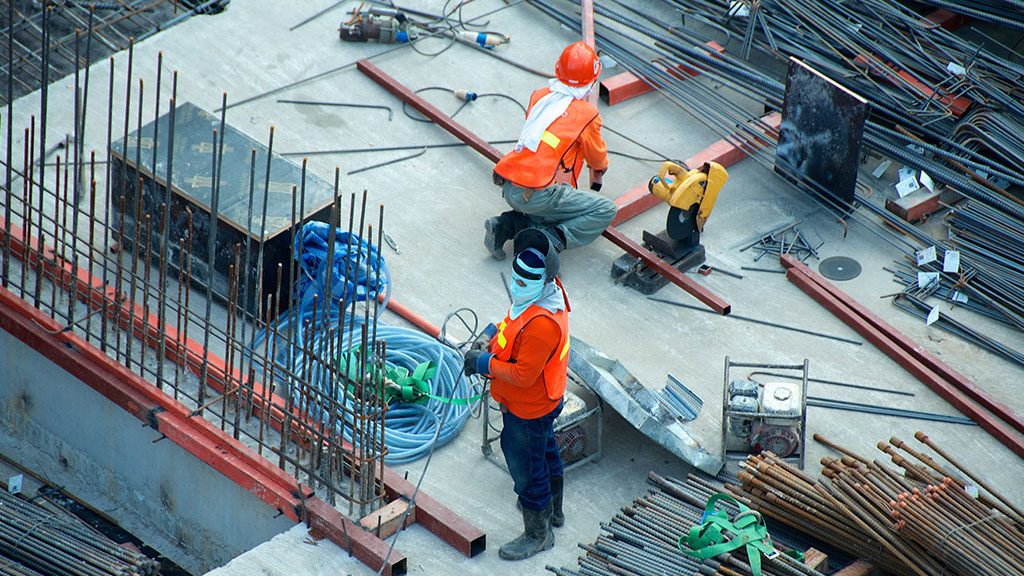The construction industry can’t afford to wait for the skilled labour shortage to resolve itself.
Stakeholders and government need to work together and take action immediately to find solutions.
That was the message from Chris Gower, COO, buildings with PCL Construction, in a recent blog post he wrote entitled Bridging the Skills Gap.
“To make tangible improvements – to make a critical difference — we need construction industry stakeholders to do more,” stated Gower in the blog. “So please consider your options and then act. We also urgently need more action from governments. In so many ways, the government could help solve the skilled labour shortage. Working together, let’s create sustainable solutions for the labour challenges we face today and prepare for what might come in the future.”
Some of the things PCL is doing and other contractors can do as well, Gower said, is collaborate with local schools; offer apprenticeships and internships; provide internal training; improve construction marketing and incentives; and access global talent.
He wrote the blog to get all parties interested in the problem — the construction industry, all levels of government and the public. Many factors contribute to this skill shortage and there’s no one-size-fits-all solution, he pointed out. While builders have an important role to play, they need government to enact policies and programs that meaningfully address the skilled labour shortage.
“The reason why I wrote this is to wake up government and also to try to get other general contractors, and there are a lot that are helping, but I think this takes a broader, more concerted effort from contractors,” said Gower.
“The biggest thing I would like to come out of this is, I would like to get action from government. I would like to motivate government to start paying attention to the issue, to do more in a more meaningful way.
“I’m hoping this drives the conversation that the problem is real. If we do nothing it’s not going to get better, in fact it’s going to get a lot worse. Then we’re going to be stuck in a place where the consequences aren’t small.”
Part of the issue, said Gower, is that the construction sector isn’t seen as a field of choice by students and their parents.
“Talking to students, getting them excited that this is a good industry, it’s important and it’s important to do it early,” said Gower.
There are a number of programs available across Canada and the U.S. that help students connect with and get introduced to the skilled trades and employers need to be supporting those programs.
Supporting co-op programs for students is another way to get people engaged.
“The industry can lead this,” explained Gower. “If we ask for co-op students, the institutions the schools will comply. They will start to cater to the needs of the marketplace quite quickly.”
In terms of what government can do, he pointed to an example where the Government of Nova Scotia eliminated the provincial portion of personal income tax on the first $50,000 of annual income for construction trade workers under 30.
“The brilliance of this program in Nova Scotia with the government is that think about what the cost is to government. It’s giving up a small amount of income for a select group of people,” Gower noted. “These are people coming out of school and it’s for a fixed term until the age of 30. By then the person is probably engrained into the industry and has a career.”
The government can also help by fast-tracking immigration.
“People talk about increasing immigration, bringing in foreign workers and that’s good,” Gower noted. “Even immigration isn’t going to solve the construction industry’s issues if the people that come into the country or even the young people coming out of school don’t choose construction.”
Without a sufficient amount of workers, builders will struggle to meet the demand required to build the expected post-pandemic boom in infrastructure, said Gower.
“If they’re (the government) going to continue to promise all the infrastructure that is yet to be built, they need to shore it up with the right people to execute the work,” said Gower.
“The pipeline for government work, I’ll be specific to Canada, is growing and the number of hospitals that are coming out to bid is incredible.”
Labour shortages can cause project delays, an increased risk of safety incidents due to inexperienced employees, and pressure on the already-thin margins and tight timelines the industry operates on, Gower pointed out.
“When there is a lack of supply of people then the cost goes up,” Gower said.
“Everything will become more expensive and even beyond being expensive it will take longer to react to the needs in the marketplace.”
Follow the author on Twitter @DCN_Angela.











Can I get opportunity to join PCL construction am trying it for long time but it never work please help me
Great article. Our organization is working on introductory training programs for trades/occupations in demand that reaches individuals in more rural areas with a mobile training centre as part of a $10 million federal Utip project.
#novascotia
Connect anytime